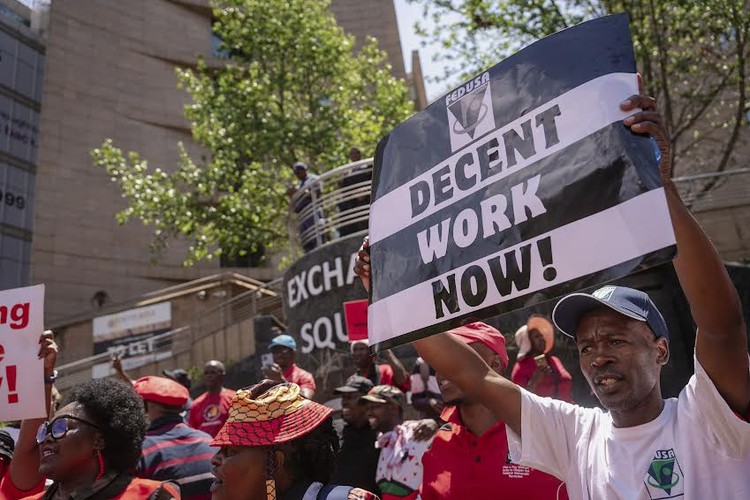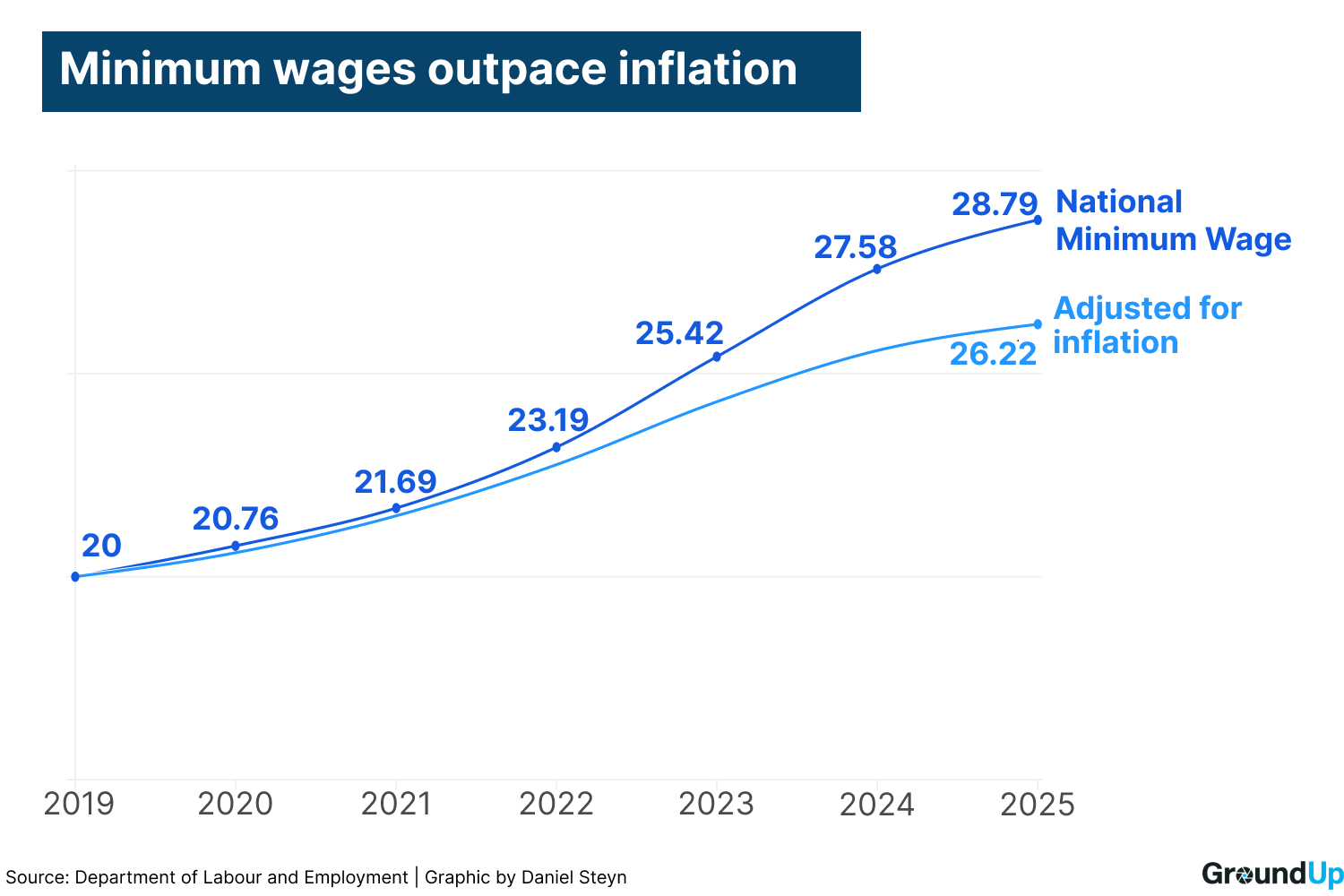
12 May 2025
Trade unions march in Sandton in October 2024. Archive photo: Ihsaan Haffejee
Since 2019, South Africa has had a National Minimum Wage, which sets the floor for all wages and salaries in the country. But for many workers, actual wages paid depend on the outcome of negotiations with employers.
The National Minimum Wage is set every year by the Minister of Labour on the basis of proposals by the National Minimum Wage Commission.
This commission, which includes representatives of business and labour, community representatives and independent experts, takes into account the cost of living, economic growth, other wage levels, the ability of employers, including small businesses, to sustain their businesses, and the impact on employment or job creation.
Anyone can make proposals on the National Minimum Wage by emailing [email protected].
In February 2025 the National Minimum Wage was set at R28.79 an hour. This amounts to R1,151.60 a week (R4,989.88 a month) for an eight hour day, and R1,295.55 a week (R5,613.62 a month) for a nine hour day.
| Daily | Weekly | Monthly |
| R28.79 x 8 hours = R 230.32 | R28.79 x 40 hours = R1,151.60 | R1,151.60 x 4.333 = R4,989.88 |
| R28.79 x 9 hours = R 259.11 | R28.79 x 45 hours = R1,295.55 | R1,295,55 x 4.333 = R5,613.62 |
The minimum wage does not include allowances, bonuses, uniforms, tips or food. These must be considered extras.
A worker who works less than four hours in a day must be paid for four hours.

With a few exceptions (such as the army), the National Minimum Wage sets a floor for all employees, including farm workers and domestic workers. No-one who works for someone else can legally be paid less than this.
But people working under the Expanded Public Works Programme have their own minimum wage, currently set at R15.83 an hour.
Employers are allowed to apply for exemption from the minimum wage. But unless they have applied successfully, they are obliged by law to pay.
The National Minimum Wage Commission also advises the Minister of Labour on minimum wages in certain sectors, such as the wholesale and retail trade, and cleaning services. Minimum wages in these sectors are set by the minister every year and can be different in different parts of the country.
In February 2025 for instance, the minimum wage for contract cleaners in the cities was set at R31.69 an hour or R6,179.07 a month. In the retail trade, the minimum wage of a cashier, for example, was set at R32.97 an hour or R6,210.27 a month.
Actual wages for many workers are set through negotiation with employers, sometimes directly, and often through bargaining councils. Bargaining councils are set up by organised workers (unions) and employer organisations, to negotiate wages and working conditions for a sector.
There are dozens of bargaining councils in South Africa, some covering the whole country and some covering specific geographic areas. Some have been around since the 1920s.
Industries covered by bargaining councils include textiles, chemicals, the motor industry, metal and engineering, leather, and building. There is a general bargaining council for the public service, and councils for sectors such as education, health and social development, and one for employees of local government.
Agreements reached in the bargaining councils are extended automatically to all workers and employers in the sector, whether or not they are members of a union or employer association. This means that non-unionised workers benefit from the efforts of organised workers.

Usually, wages set through negotiation are higher than the minimum wages set by the labour minister. How much higher often depends on the negotiating strength of the trade unions, as well as on economic conditions.
In its annual Wage Review for 2024, for instance, the Labour Research Service in Cape Town analysed minimum wages across more than 560 collective agreements (bargaining council and company level agreements) covering more than 2-million workers, and found minimum bargaining council wages were generally higher than the National Minimum Wage.
The median minimum wage in bargaining council agreements was R6,762 a month compared to the National Minimum Wage of R4,776 a month (based on a 40 hour week at R27.58 an hour).
The median is the middle of the range, meaning that 50% of workers were paid more than R6,762 a month and 50% were paid less.
This is part of an occasional series explaining issues in economics. GroundUp is grateful to Andrew Donaldson of the Southern Africa Labour and Development Research Unit for advice on the series.